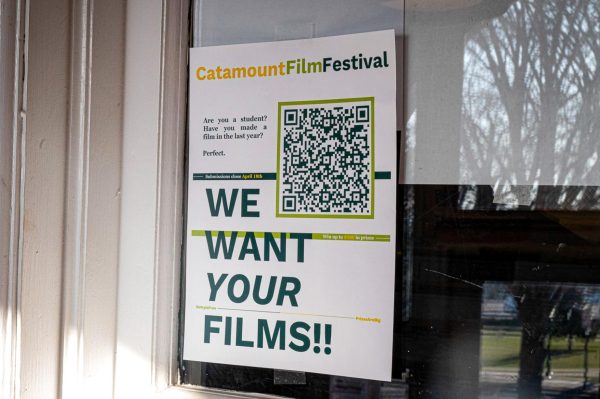Students drawn to mindfulness on campus
At UVM I always hear the term “mindfulness,” yet I never have a complete understanding of what it is and how I too, can practice it.
Mindfulness practices are actually informed by Buddhism, said Lindsay Foreman, director of Engage Mindfulness for Living Well.
But, she explained, one does not have to be Buddhist to engage in mindfulness.
“Actually, many people of different religions practice the techniques of mindfulness to deepen their spiritual experience,” she said. “There is no dogma or belief system, so one does not have to have any religious interest to get involved.”
Mindfulness can be used in a variety of ways, including to develop a deeper understanding of ourselves, others and the world around us, according to the Center for Health and Wellbeing website. It is a combination of relaxation and concentration that allows someone to focus on their mind and body, according to the center.
The practice of mindfulness is the practice of awareness, UVM yoga instructor Tiffany Tuttle said.
“In yoga, that may translate into the awareness of our breath, our thoughts or even our actions both on and off the mat,” Tuttle said.
Individuals have the opportunity to reflect on how their practices affect themselves and others, since “with an increased self awareness and greater connection to our truth, we can better make conscious choices that help us to be content with what is exactly as we are moment to moment,” Tuttle said.
Jess Cohen, UVM 2016 alumna and special educator at Swanton School in Swanton, Vt., said mindfulness has benefitted her life.
“As a yoga instructor, special educator and someone who meditates daily, I have woven mindfulness into all aspects of my life,” Cohen said. “Mindfulness has allowed me to look at my life and current situations from a place of compassion and non-judgment.”
She has developed the skills necessary to handle difficult situations by connecting with her breath and being able to ground herself in the present moment, Cohen said.
In order to pass down the techniques she has learned, including breathing exercises, focusing on the inner self and being in the present, Cohen has started to incorporate mindfulness into her lessons with students.
This helps increase their own self-regulation skills and confidence in school and in life, she said.
Mindfulness is an empowering practice for individuals, Foreman said.
“The skills of mindfulness support us to experience ourselves and our world with greater clarity and compassion,” she said.
Students are often drawn to mindfulness because they feel overwhelmed, stressed or lost for a variety of reasons, according to Foreman.
“When they start to dive into the practices they not only start to find relief, but also feel more alive in a way they had not imagined,” she said.
This practice can be used not only for individual wellness, but also as a tool for social justice, Foreman said.
This perspective stems from the work of Thich Nhat Han, a Vietnamese Buddhist monk who encouraged a group of staff at UVM to initiate a mindfulness practice center on campus, Foreman said.
The “Engage Mindfulness” program at UVM is a tribute to him and the work he has done with social justice and the environment, she said.
Han helped others understand that the insights gained from practicing mindfulness have the ability to inform how we decide to shape our world, such as how compassion can impact choices when one is faced with injustice, Foreman said.
“For me, I am not practicing mindfulness so that I can just thrive in an unjust world, but instead examine my participation in injustice and do my best to undo harm and work towards justice,” she said.







Dr. Carl Erikson • Apr 18, 2017 at 1:01 am
Mindfulness and meditation have been proven to be extremely beneficial in many areas of life, psychologically, spiritually and physically for people of all ages. Taking 15 minutes out of each day to do a meditation practice and then practicing mindfulness throughout the day is a very effective way of improving one’s life and health. As a psychotherapist, I have been teaching my clients and patients mindfulness and meditation for over 30 years. To be sure that they do the needed practice on a daily basis I strongly suggest they work with some of the guided mediation programs at http://www.lightunlimitedpublishing.com by Jon Shore. They are all consistently well produced and they have different exercises for various purposes. Most important is to practice on a daily basis, like anything we want to be good at. The more you practice the more available the skills will be available when they are really needed. It can’t hurt to try.